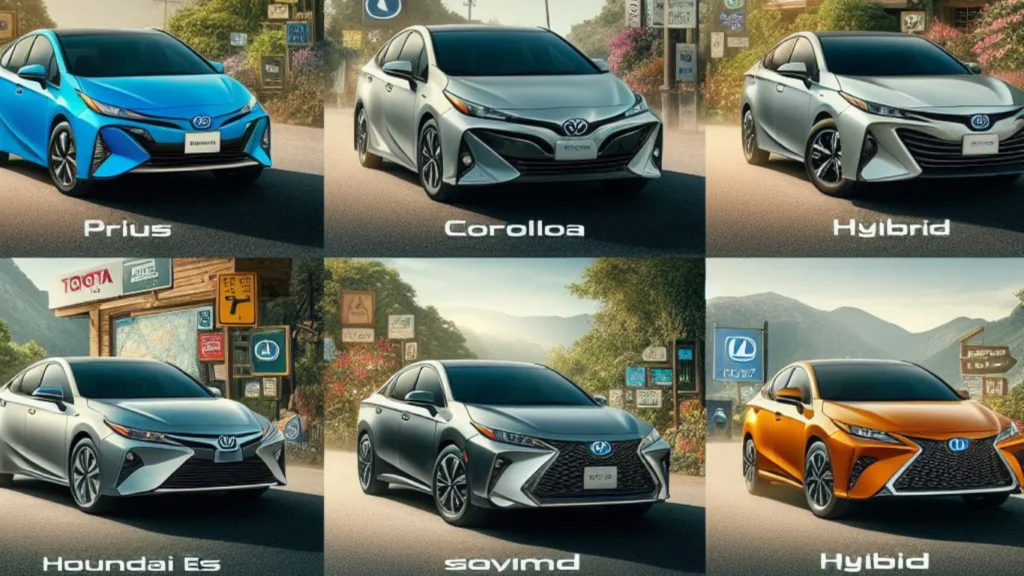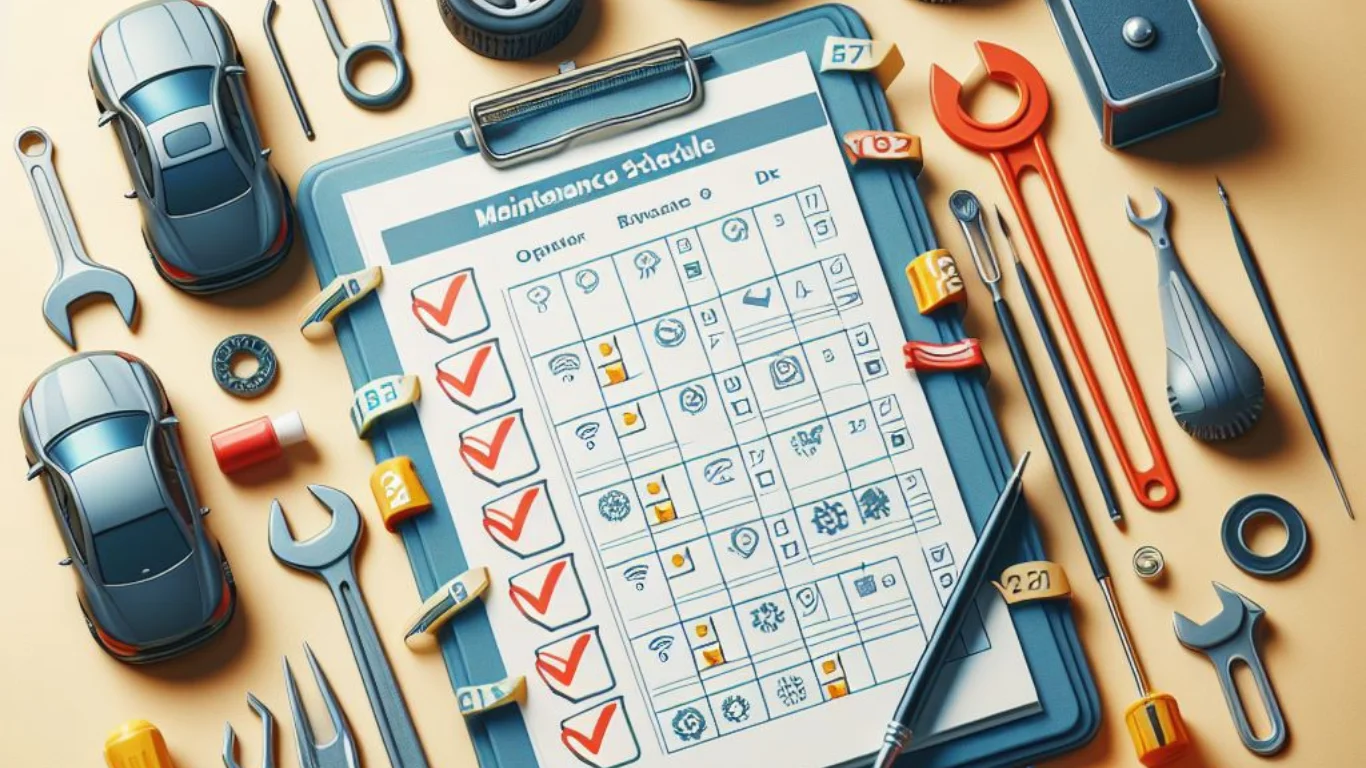
If you're searching for a car that can withstand the test of time and doesn't need costly repairs, consider looking at Consumer Reports' latest list of the most dependable cars. The nonprofit organization tested hundreds of vehicles and ranked them based on various categories, including road tests, owner satisfaction, safety, and predicted reliability.
Predicted reliability measures how likely a car is to have future problems that require repairs or replacements. Consumer Reports utilizes yearly surveys of over 400,000 car owners, historical trends, and expert opinions to estimate how well a car will perform over time.
Consumer Reports states that the average car can last about 150,000 miles before it becomes too costly or risky to maintain. However, if a car is well-maintained and has few significant issues, it may last much longer, even beyond 200,000 miles.
This article will reveal the ten cars from the 2024 model year with the best reliability scores that will last 200,000 miles or more. We'll also explain why these cars are so dependable and how you can save money on repairs by extending their lives.
The Top 10 Most Reliable Cars for 2024, According to Consumer Reports

The following ten model-year 2024 cars were identified as the most likely to last 200,000 miles or more based on their predicted reliability scores:
- Toyota Prius
- Toyota Corolla Hybrid
- Hyundai Sonata Hybrid
- Lexus ES Hybrid
- Toyota Camry Hybrid
- Honda Accord Hybrid
- Toyota RAV4 Hybrid
- Lexus NX Hybrid
- Toyota Highlander Hybrid
- Lexus RX Hybrid
It is easy to see that most of the cars on this list are hybrids, which combine electric motors with gasoline engines for improved fuel efficiency. Because hybrids have fewer moving parts and less wear and tear on the engine, Consumer Reports says they tend to have fewer mechanical problems than conventional cars. Regenerative braking is also a feature of hybrids, which helps reduce brake stress and extends the life of the brakes.
The reputation of their manufacturers also contributes to their reliability. Toyota and Lexus, owned by Toyota Motor Corporation, are renowned for making high-quality, durable vehicles that rarely require repair. Hyundai and Honda are also known for their reliability and customer service.
Why Are Hybrids More Reliable Than Conventional Cars?

The common perception is that hybrid cars are more reliable than conventional cars, despite having more components and systems like batteries, electric motors, and power converters. This may seem counterintuitive, but it's because hybrids are simpler and wear out less in the engine than traditional cars.
Consumer Reports confirms that hybrids are less likely to suffer mechanical failures than conventional cars. There are several reasons for this:
- Hybrids use an electric motor to start and stop the engine, which reduces stress and strain on the starter and alternator.
- As the engine accelerates, the electric motor assists, reducing the engine's load and fuel consumption.
- The electric motor powers accessories such as the air conditioning and radio, reducing demand and drain on the engine and battery.
- Using regenerative braking, hybrids convert kinetic energy into electrical energy stored in the battery, reducing the heat and friction on the brakes, thereby extending their life.
- Hybrids have sophisticated computer systems that monitor and optimize the car's performance and efficiency, detecting and preventing potential problems.
All of these factors make hybrid vehicles more reliable than standard vehicles. They have lower maintenance costs, requiring less frequent oil changes, tune-ups, and brake services. Hybrids have a lower chance of breakdowns, repairs, or replacements than traditional cars.
How do you make your car last longer and save money on repairs?

Here are some tips on how to save money on car repairs and make your car last longer:
Of course, no car is perfect, and any car can have unexpected problems or defects. Consumer Reports advises car owners to follow the recommended maintenance schedule, use the right type of oil and fuel, and address any issues as soon as they arise. Doing so can increase your car's chances to last longer and save you money in the long run.
To ensure the longevity of your car, it is essential to check and maintain its different components regularly. Here are some areas you should pay attention to:
- Oil: Regularly check your oil level and quality, and change it according to the manufacturer's instructions. The engine needs oil for cooling, lubricating, and preventing corrosion and sludge buildup.
- Tires: Regularly check your tire pressure and condition and inflate them to the recommended level. Properly inflated and maintained tires ensure safety, stability, and fuel efficiency. Underinflated or worn-out tires can cause accidents, damage, or blowouts.
- Fluids: Regularly check your fluid levels and quality, and refill or replace them as needed. Fluids are vital for properly functioning various systems and components, such as the brakes, the transmission, the cooling, and the steering. Low or dirty fluids can cause overheating, leaks, or failures.
- Battery: Regularly check your battery and cables, and clean or replace them if necessary. The battery is responsible for starting the car and powering the accessories. When a car's battery is weak or dead, it can prevent it from starting or running properly.
- Belts and hoses: Regularly check your belts and hoses, and tighten or replace them if they are loose, cracked, or frayed. Fluids and power are transferred through belts and hoses to various parts of the car, such as the alternator, the water pump, and the radiator. Broken or leaking belts and hoses can cause serious damage or malfunction.
- Lights and wipers: Regularly check and replace your lights and wipers if they are dim, broken, or worn out. Lights and wipers ensure visibility and safety in different weather and road conditions. Faulty or ineffective lights and wipers can impair your vision or signal and increase the risk of accidents or tickets.
- Air filter and cabin filter: Regularly check your air filter and cabin filter, and replace them if they are dirty or clogged. Filters in the cabin and in the air are responsible for capturing dust, debris, and pollutants in the cabin and protecting it from dust, debris, and pollutants. Dirty or clogged filters can reduce the car's performance and efficiency and affect the passengers' health and comfort.
Following these tips can help you extend the life of your car and save you money on repairs. Consult your owner's manual or a trusted mechanic for more specific and detailed advice on maintaining and caring for your car.
Conclusion
If you're looking for a long-lasting car, Consumer Reports has just released a list of the top 10 most reliable 2024 models that will likely last over 200,000 miles. The list mostly consists of hybrid cars powered by gasoline engines and electric motors to improve fuel efficiency and reduce emissions. Since hybrids have fewer moving parts than traditional cars, they are less likely to experience mechanical problems and have regenerative braking, which increases the lifespan of the brakes.
The reliability of these cars is also attributed to the reputation of their manufacturers. Toyota Motor Corporation's Lexus and Toyota brands are known for producing high-quality, long-lasting vehicles requiring minimal repairs. Hyundai and Honda are also well-regarded for their reliability and customer satisfaction.
However, no car is flawless, and unexpected problems or defects can occur with any vehicle. Consumer Reports recommends following the recommended maintenance schedule, using the correct oil and fuel, and addressing problems as soon as they occur to increase the chances of your car lasting longer and saving money. To purchase one of these cars, visit the Consumer Reports website for detailed information and ratings. You'll be able to compare different models and their features and read reviews from other car owners. Consumer Reports is an independent and unbiased source of information that doesn't accept advertising or donations from car manufacturers.
